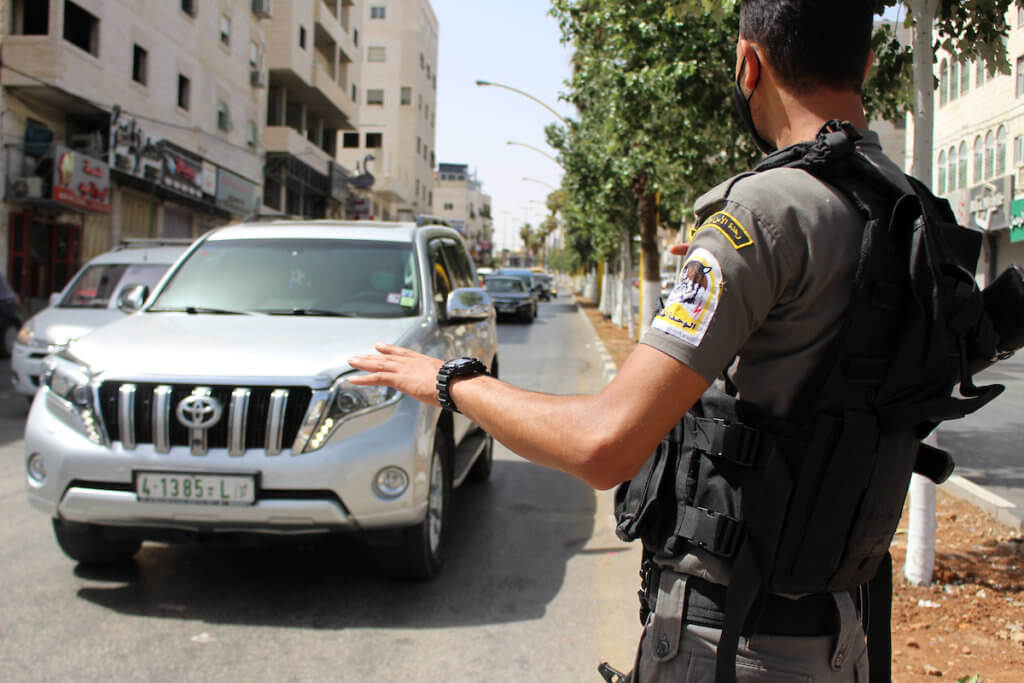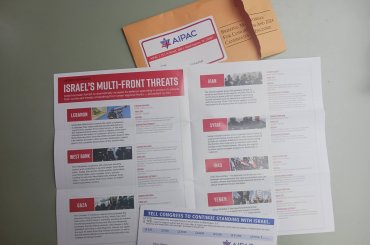The Latest:
- 1,720 total confirmed COVID-19 cases among Palestinians
- 1,442 in the West Bank
- 72 in Gaza
- 206 in Jerusalem
- 22,638 confirmed cases in Israel; 313 deaths
The last week saw a surge in COVID-19 cases in the West Bank, predominately in the Hebron area around the West Bank largest and most populous city. As of Thursday, Hebron recorded a total of 810 cases. To give some scale to that number, at the start of the week there were 473 cases.
While the jump is significant, it does seem relatively contained for the moment. New closures were announced this week in Hebron and Nablus, but they are temporary measures only in effect for five days and 48 hours respectively, according to the Palestinian ministry of health. What’s more “weddings, reception parties, graduation parties, and all forms of gathering” are banned across the West Bank. Health officials went on to warn, “we will be monitoring the application of these procedures for five days, and if they are not applied, we will resort to other sharper procedures.”
Of the new cases most are not severe. Only 30 from Hebron and Bethlehem are being treated in hospitals.
In Bethlehem, where the coronavirus outbreak initially began in the West Bank, there are no new cases. Similarly, there are still some areas seemingly untouched by COVID-19. The Palestinian ministry of health still has not found any cases in Jenin, Qalqilya or Tubas.
If you’re wondering what’s going on, the end of lockdown measures were premature. While regulations around schools, churches, mosques and shops began lifting in late May, the social distancing guidelines that are were and are still in place were ignored. We’ve covered frustration over the lack of enforcement in public for weeks in the Tuesday edition of this newsletter.
While the coronavirus pandemic had appeared to dwindle, things took a turn on June 20 when the single highest number of new infections since March were recorded. In total, 86 new cases were found.
The governor of Hebron and the Palestinian minster of health both pointed to “large gatherings” and the lack of face masks as the cause. Testing was ramped up in the area with “more than 1000 swabs in less than four hours” on Wednesday alone in just the city of Hebron, according to a post on Facebook from the ministry of health. The Minister of Health Mai Al-Kaila said that same day, “We have carried out more than 100,000 laboratory tests of suspected coronavirus infections since the beginning of when we started monitoring the virus in Palestine.”
Keep in mind, there are still major gaps in testing.
The Director of Preventive Medicine in the Ministry of Health Dr. Ali Abed Rabbo elaborated that health officials have not ruled out the possibility of undetected cases roaming around the West Bank. Some contact tracing was put in place and he estimates “COVID-19 positive individuals may transmit the infection to an average of 10 to 15 people in this wave, especially in some areas of Hebron Governorate.”
It’s worth underscoring in this conversation that Israel is also seeing a spike in new cases. From June 21 to 24, there were 1,411 new cases recorded. In response, health officials similarly reeled out partial lockdowns or “restricted zones” over an entire city and a few neighborhoods.

Report: patients in Gaza are dying after prioritizing COVID-19 care
At least 73 people have died and around 1,200 do not have access to critical care in the Gaza Strip due to strapped medical resources during the COVID-19 crisis, according to the charity HelpAge International.
HelpAge International is the largest global network emphasizing anti-discrimination and healthcare rights for older people and operates in 80 countries. In partnership with the El Wedad Society for Community Rehabilitation in Gaza, on Tuesday the group released a rather sober account of what the capacity gap means for Gaza’s sickest patients who don’t have COVID-19 but found their care interrupted.
“850 oxygen gas cylinders [were] redistributed from people who need them for other health conditions to give to COVID-19 patients,” the press release said.
We’ve been reporting since the start of the pandemic that Gaza has only 60 percent of its needed stock in medical devices and medications, but as far as we can tell this is the first we’re hearing of hard numbers on Palestinians dying because their medical care was suspended by the pandemic.
More from HelpAge and El Wedad: “The European Hospital in Khan Yunis in the Gaza strip effectively closed its doors to all but COVID-19 patients. 3,500 patients who depend on it for healthcare have had to make way for a potential influx of people suffering from the virus. This has particularly affected patients with kidney and heart diseases, as well as those suffering from breathing difficulties. They have had to register with other hospitals, many of which do not have the medical equipment they require and have long waiting lists.
850 patients who previously relied on the use of oxygen gas cylinders at the hospital are no longer able to use them and cannot afford $350 to buy their own, according to the Ministry of Health.”
‘A wedding turned funeral’

Lastly, before we go this week we want to share some sad news. Many of you may already be aware, but friend of the site human rights attorney Noura Erakat is grieving the death of her cousin. Ahmed Erekat died at the age of 27 on Tuesday after he was shot by an Israeli soldier at a checkpoint moments after his vehicle crashed into a stall at the barrier. Ahmed was denied medical treatment and laid bleeding for one and a half hours while Palestinian medical crews were prevented from treating him, according to his relatives.
Ahmed was en route to pick up his sister from a hair salon on the other side of the checkpoint near Bethlehem. It was his sister’s wedding day. His own wedding was due to follow in July.
We encourage you to visit Noura’s Twitter page and read this thread. (Warning, the thread contains a redacted video of the killing released by the Israeli military). Noura’s raw thoughts and grief are sparking a powerful conversation on why there was a checkpoint between two Palestinian cities. Our thoughts are with the Erakat family this week.
That’s it for now. We’ll see you Tuesday. Stay safe in these trying times.


